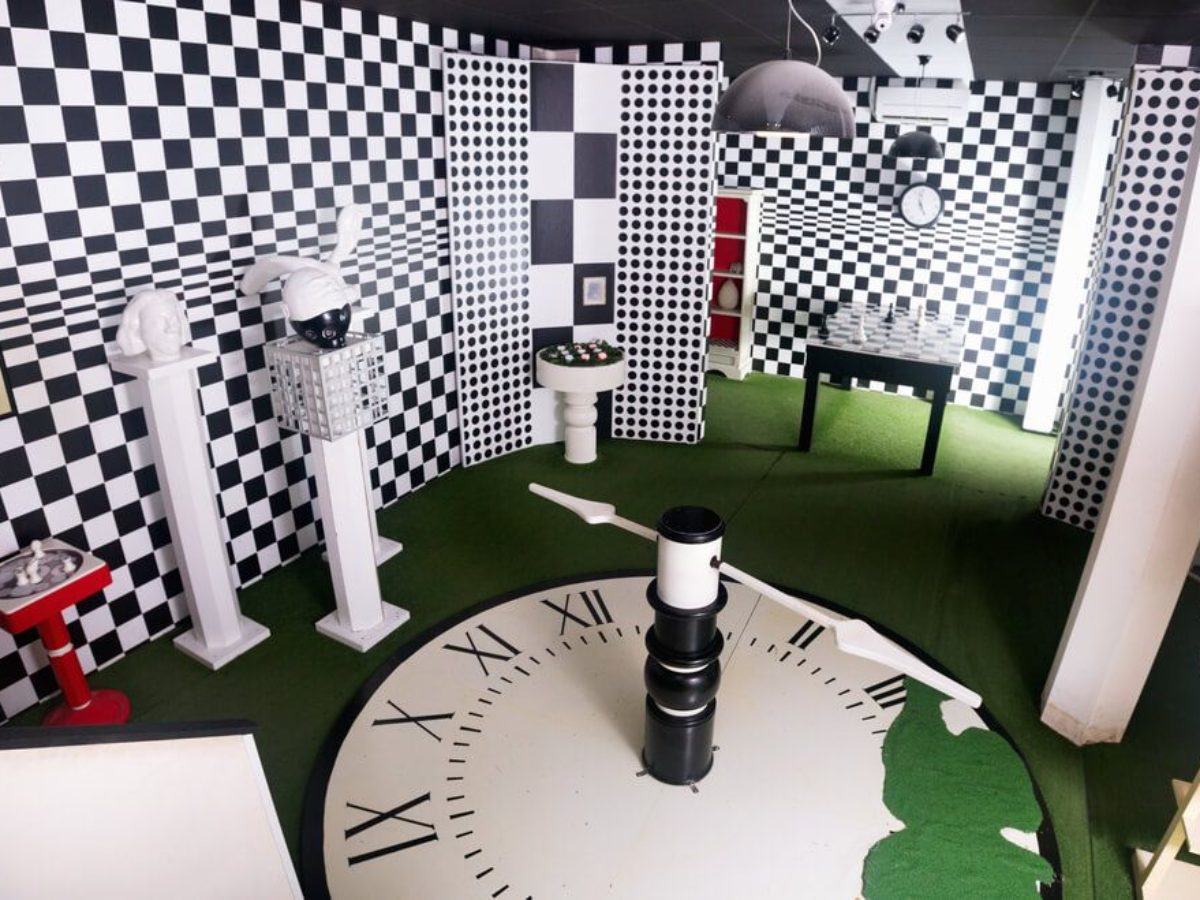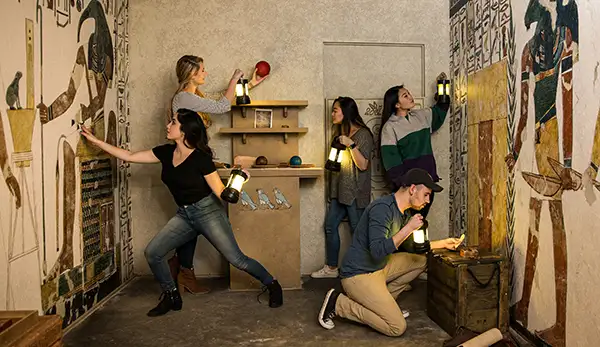Enjoyable and Testing Escape Room-- Strategy Your Next Journey
Enjoyable and Testing Escape Room-- Strategy Your Next Journey
Blog Article
Group Methods: Exactly How to Team up Efficiently in a Retreat Space
Teams have to proactively listen to each member's understandings, appoint roles that straighten with individual strengths, and keep regular check-ins to make certain emphasis and avoid redundancy. By cultivating an environment that values cohesion and flexibility, teams can substantially heighten their efficiency and success prices.
Establish Clear Interaction

To promote clear communication, it is vital to mark a central point of call for info dissemination. This role entails summarizing findings and suggested techniques to make certain everybody stays on the same page. In addition, embracing a systematic strategy to discussions can protect against disorderly exchanges. Short, focused updates from each group participant can maintain the group notified without frustrating them with information - best escape room.
Designate Functions Strategically
While clear interaction sets the foundation for effective synergy, designating roles tactically makes certain that each staff member's staminas are used efficiently. In a retreat space circumstance, the time-sensitive and intricate nature of difficulties necessitates a well-organized strategy to job delegation. By determining and leveraging specific competencies, teams can enhance their analytic abilities and boost total efficiency.
First, assess the special skills and attributes of each individual. Someone with a keen eye for information could stand out in locating hidden items, while a sensible thinker might be much better matched to fixing challenges. It's similarly vital to have a leader that can supervise progression, take care of the timeline, and make decisive calls when needed. This duty usually requires strong organizational and interpersonal abilities.
Second, make certain that roles are versatile and adaptable. As new difficulties arise, the group needs to have the ability to pivot, reallocating tasks as required. This adaptability assists maintain energy and protects against traffic jams that might happen due to rigid role tasks.
Inevitably, a strategic approach to duty job company website not only optimizes the toughness of each group member but additionally fosters a cohesive environment, driving the team in the direction of a successful retreat.
Use Diverse Skills
Identifying and taking advantage of the diverse abilities home within your team can considerably elevate your efficiency in an escape area. Each group member brings one-of-a-kind staminas to the table, and successfully leveraging these abilities can expedite analytic and enhance overall efficiency. A group member with solid logical skills could succeed at figuring out intricate codes or patterns, while an additional with keen empirical abilities may promptly identify covert hints that others could ignore.
Urge group members to articulate their understandings and concepts promptly, making sure that all prospective options are thought about. Furthermore, appointing jobs that line up with each participant's strengths can prevent bottlenecks and ensure that progression is continuous.
Moreover, variety in abilities typically equates to diversity in assuming designs, which is very useful in a getaway room setup. While some obstacles may require rational thinking and accuracy, others might profit from imaginative and association of ideas. By acknowledging and leveraging this diversity, groups can attend to a wider series of difficulties much more effectively, thus enhancing their chances of an effective getaway.
Manage Time Properly

Identify noticeable challenges and divide jobs based on team participants' strengths, ensuring that no one is idle. This technique can help maintain the team concentrated and stop time from slipping away unnoticed.
In addition, prevent tunnel vision. If a problem is taking as well long, rotate staff member or relocate on to one more challenge, returning later with fresh viewpoints. Communication is paramount-- maintain everyone updated on fixed problems and staying tasks to stay clear of repetitive initiatives.
Finally, make use of any kind of tips or ideas sparingly however tactically - best escape room. Knowing when to request aid can conserve beneficial time. By adhering to these time management concepts, teams can substantially enhance their chances of a successful and enjoyable getaway room experience
Debrief and Show
Representation is an important aspect of team growth and improvement in the context of getaway rooms. Once the difficulty is finished, whether effectively or not, it is vital click over here now for the group to take part in a structured debriefing session. This process allows staff member to evaluate their efficiency, determine toughness, and determine areas for improvement.
Start the debrief by discussing what worked out. Highlight details circumstances of efficient interaction, analytic, and cooperation. Recognizing these positive behaviors reinforces them and motivates their repeating in future obstacles.
Go over minutes of complication, miscommunication, or inefficient strategies. Motivate an open and constructive discussion where group participants can share their perspectives without worry of objection.
Conclusion
In final thought, successful collaboration in an escape area is asserted upon clear interaction, tactical duty tasks, the reliable usage of varied abilities, and competent time administration. By developing a natural and flexible team environment, the chance of successfully resolving problems and attaining the objective of escaping the area is substantially boosted.
Report this page